Plot: Expect the unexpected. The long-awaited return of Charlie Brooker’s dark, satirical anthology series which reinvents itself with each new episode. The sixth season of Black Mirror is the most unpredictable, unclassifiable and unexpected yet. The series is created and written by Charlie Brooker.
Review: Black Mirror has become a prescient look at our modern world of technology through a Twilight Zone lens. Charlie Brooker’s creative vision for his anthology series has amassed only twenty-eight entries over twelve years, each a chilling, satirical, horrifying, and sometimes funny look at the 21st century and beyond. Since shifting to Netflix from Channel 4, Brooker has ventured outside of the expected to give us an interactive film and almost feature-length episodes. The newest season of Black Mirror boasts two entries that are feature films themselves and another that mocks the streaming platform it can be found on. The result is an inconsistent batch of stories that vary from forgettable to brilliant.
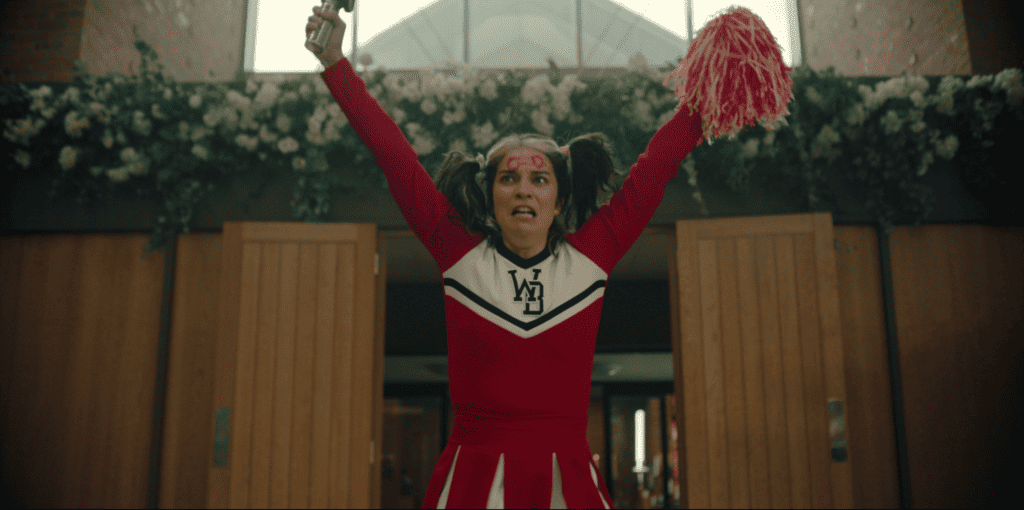
While Black Mirror has most of its episodes set in a contemporary time period or a slightly futuristic setting, four of the five tales that comprise this sixth season are set in the past. This could indicate Charlie Brooker’s stories running out of material based in the 2000s. Still, I think it is a way to indict our current reliance on technology by presenting it via a historical lens. The five episodes, filmed in the UK and Spain, boast an international cast including globally recognized stars and up-and-coming actors who will gain massive exposure from their appearance this season. This season only has one episode featuring a writer other than Brooker, Demon 79, co-written by Brooker with Ms. Marvel scribe Bisha K. Ali. The directors on the series also feature new names to the anthology and some returning filmmakers like Toby Haynes.
The longest episode, Beyond the Sea, lead the weakest entries this season. Directed by John Crowley (The Goldfinch), it’s set in an alternate 1969, and features Aaron Paul, Kate Mara, Rory Culkin, and Josh Hartnett in a story about the first space flights where astronauts are able to control robotic versions of themselves on the planet below. In many ways, the episode reminded me of Duncan Jones’ excellent Moon, but this chapter is overlong and never quite digs into the plot in a way that makes it worth investing in. An equally flat episode is Mazey Day from director Ute Briesewitz (The Deuce, Stranger Things, Westworld). The episode focuses on Zazie Beetz as Bo, a paparazzi photographer trailing the title actress. The entry has a massive twist halfway through the forty-minute episode that would have worked had I cared more about the characters. Similarly, the episode Loch Henry, directed by Sam Miller (I May Destroy You), looks at the true crime genre and the civilians investigating cold cases. There have been a lot of shows about true crime podcasts and armchair detectives that leave the twist in this entry easy to figure out, which undermines the drama of the episode as a whole.
The remaining two episodes are the new season’s highlights and single-handedly save it from unbridled mediocrity. The first episode of the season, Joan is Awful, is the sole episode set in the present day and focuses on the title character, played by Annie Murphy. Further distancing herself from her breakout role on Schitt’s Creek, Murphy plays Joan, a tech CEO, who discovers Streamberry, this episode’s Netflix, has a series about her own life events that occurred that same day featuring Salma Hayek playing Joan. Hayek is hilariously perfect as the Hollywood equivalent of the average Joan. She goes on a rampage to reclaim her life after signing it over when she installed the Streamberry app. Through some crazy events, Joan teams with the real Salma Hayek to take down the A.I. ruining their lives. Director Allly Pankiw manages the Russian nesting doll of a story featuring Michael Cera in a perfect cameo. This episode is the closest to classic Black Mirror of any episode this season as it indicts our modern binge culture.
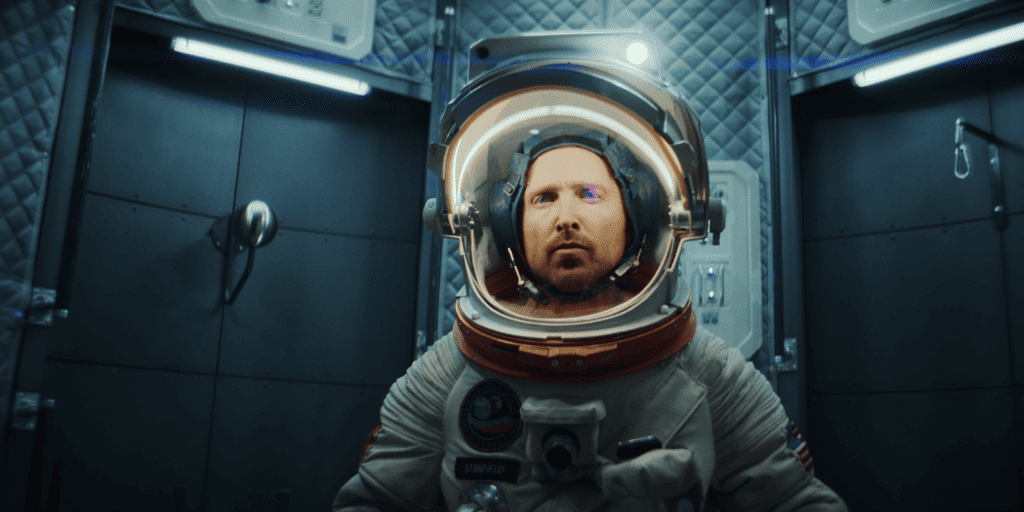
Bookending the solid first episode is the brilliant Demon 79. Directed by Toby Haynes, Demon 79 is the only entry this season that does not feature the Black Mirror opening titles. Instead, the opening heralds it as a Red Mirror film. Sliding more into horror than science fiction, Demon 79 is set in the UK and follows the quiet life of Nida (Anjana Vasan), who works at a department store. In 1979, the tumultuous politics in Margaret Thatcher’s era plays a factor in the story, which finds Nida discovering a rune that frees a demon. Taking the visage of a disco singer, the demon (Paapa Essiedu) tasks Nida with killing three people so that Hell can claim their souls. If she doesn’t comply, it will trigger the Apocalypse. Nida cannot tell if she is going crazy or if this demon is actually real. Of all the episodes, Demon 79 is both the funniest and the most unique. There are so many commentaries and themes in this story that make it work and hopefully signals that future entries in this anthology will take risks like this. Or could we see a Red Mirror series of its own?
Getting new episodes of Black Mirror is a win for fans regardless of the content, but this season boasts a very big range of quality. All five episodes are intriguing and superior to similar productions, but the three middle episodes fall short of what the last two seasons of this series have achieved. That being said, for as underwhelming as those episodes are, Joan is Awful and Demon 79 are two of the best entries of Black Mirror since the first season. Demon 79 could have been released as a standalone feature and is the most exciting shift in Charlie Brooker’s anthology to date. Whether Black Mirror continues or transitions into Red Mirror, this season offers a sometimes darker and oftentimes funnier look into the slightly cracked world parallel to our own.
Season six of Black Mirror is now streaming on Netflix.


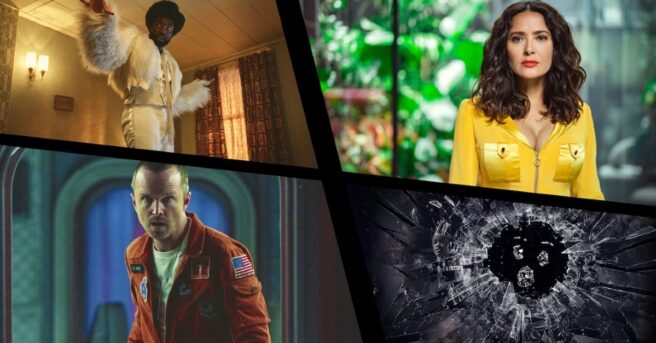







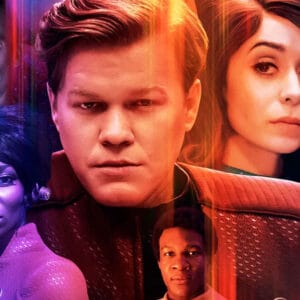
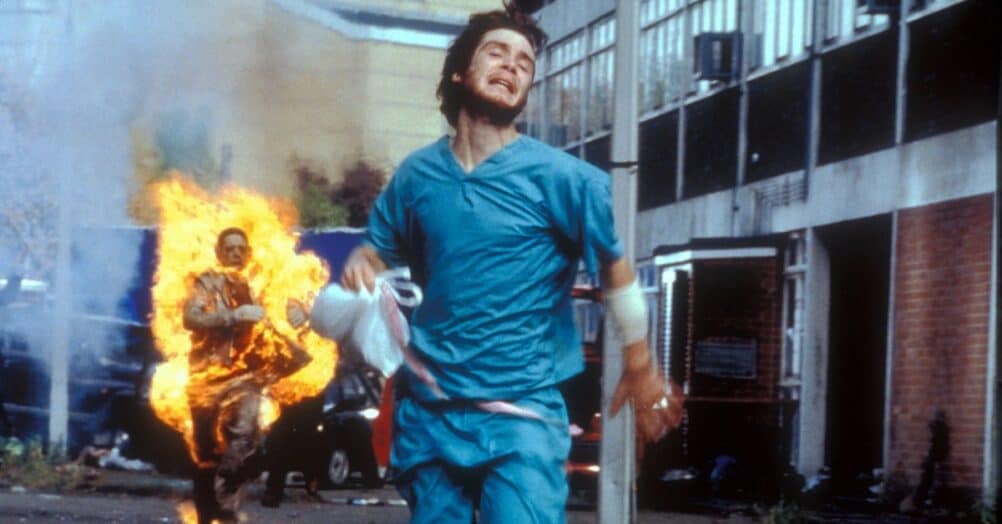





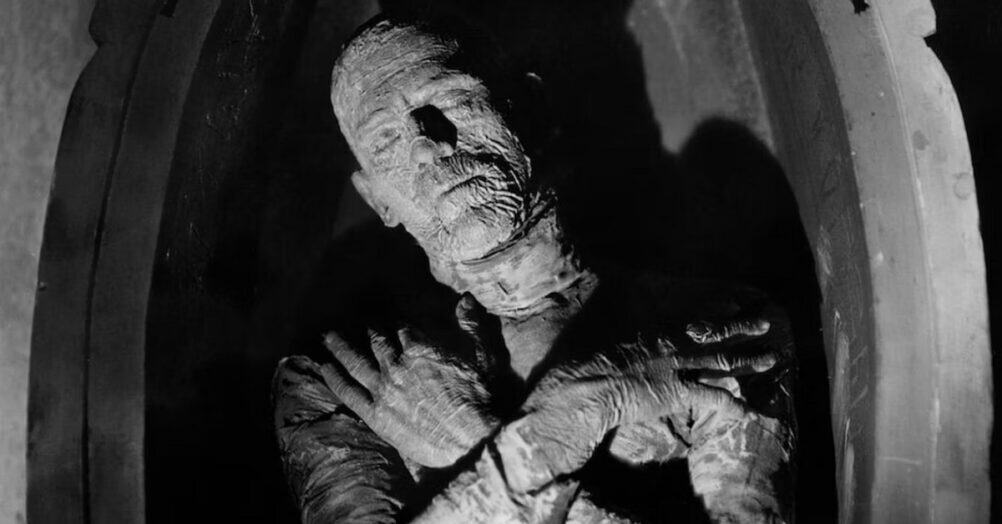
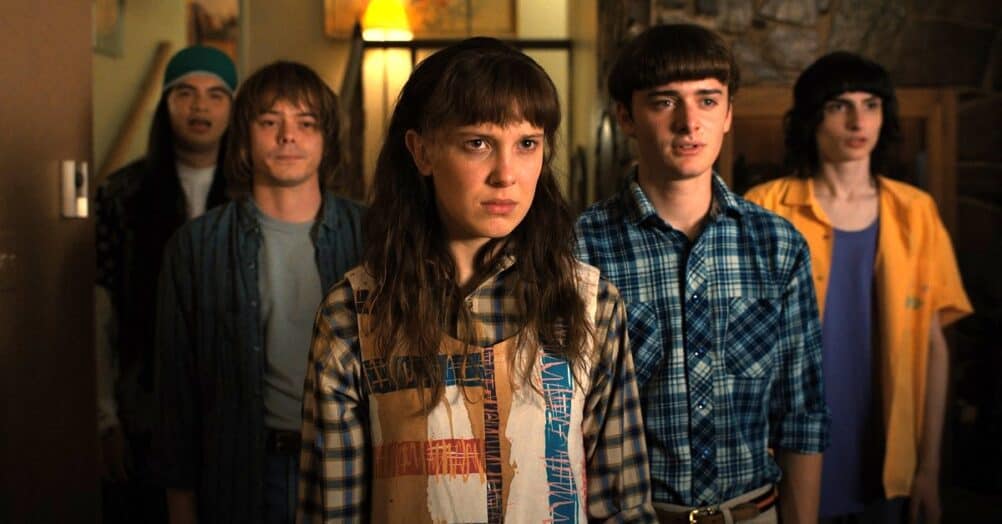

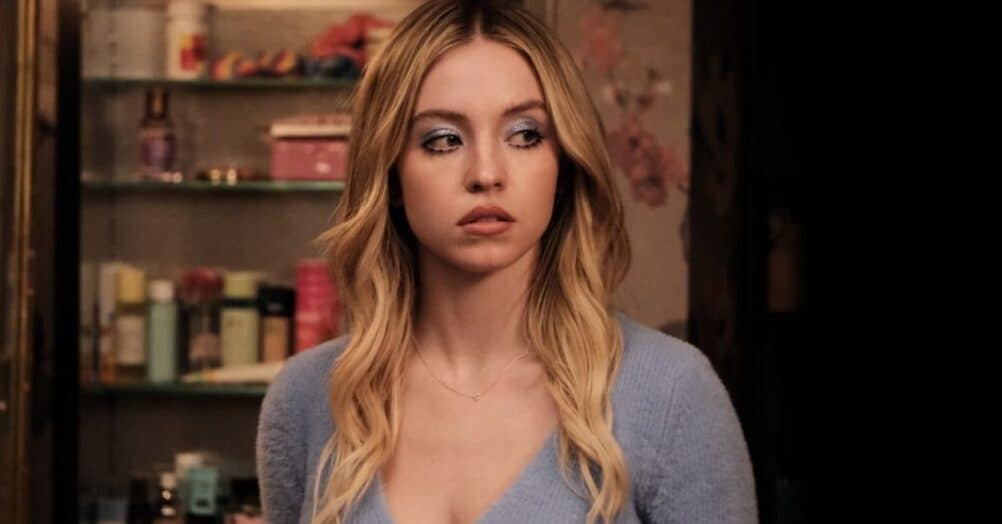
Follow the JOBLO MOVIE NETWORK
Follow us on YOUTUBE
Follow ARROW IN THE HEAD
Follow AITH on YOUTUBE